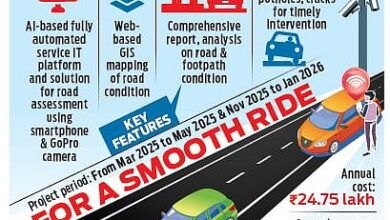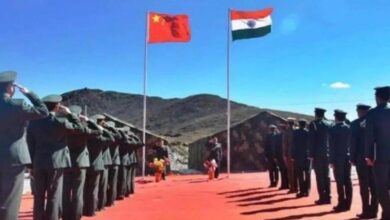
In a landmark address that has captured global attention, External Affairs Minister S Jaishankar asserted that the longstanding Kashmir issue is “mostly solved” and called for the return of what he described as the “stolen” part of Kashmir from Pakistan. This decisive statement marks a significant moment in India’s foreign policy and signals a bold new approach in addressing one of the most contentious issues in South Asian geopolitics.
A New Chapter in the Kashmir Debate
During a high-level briefing, EAM S Jaishankar elaborated on the progress made over the years in resolving disputes related to Kashmir. He noted that while challenges remain, the overall trajectory of developments in the region has been positive. The minister’s commentary reflects a broader consensus among Indian policymakers that substantial diplomatic and strategic measures have largely settled many of the core issues surrounding Kashmir.
Major Milestones Achieved: Over recent years, efforts to improve governance, infrastructure, and security in the region have led to measurable progress. Initiatives aimed at integrating Kashmir more closely with the rest of India have borne fruit, with improvements in economic development and regional stability.
Call for Territorial Restoration: In his address, Jaishankar did not shy away from a firm stance on the matter of territorial integrity. He contended that the “stolen” parts of Kashmir must be returned to India, emphasizing that this is not just a political demand but a matter of national pride and historical justice.
Diplomatic Implications: The minister’s comments are likely to influence future negotiations and diplomatic engagements with Pakistan. By framing the issue in terms of rectifying past injustices, India is setting the stage for a redefined dialogue that focuses on reclaiming its sovereign territory.
Historical Context and Strategic Significance
The Kashmir conflict has long been a source of tension between India and Pakistan, dating back to the partition of British India in 1947. Over the decades, the region has witnessed several wars, diplomatic stalemates, and ongoing insurgencies. However, recent developments have pointed to a gradual normalization of relations and a more pragmatic approach to resolving disputes.
Changing Geopolitical Landscape: Global shifts in power dynamics and evolving international attitudes towards regional conflicts have created new opportunities for dialogue. India’s recent strategic initiatives in the region have aimed at not only improving local governance but also redefining its relationship with Pakistan.
Economic and Security Reforms: Investments in infrastructure, economic development, and enhanced security protocols have played a critical role in stabilizing Kashmir. These reforms have bolstered public confidence in the region’s future and helped reduce the prevalence of extremist activities.
National Sentiment: For many Indians, the issue of Kashmir is deeply personal, tied to national identity and historical narratives. Jaishankar’s call for the return of “stolen” land resonates strongly with public sentiment and is seen as a reaffirmation of India’s commitment to its territorial integrity.
Reactions and the Road Ahead
The declaration by EAM S Jaishankar has ignited a spectrum of reactions both domestically and internationally. Supporters of the minister’s stance argue that it reflects a realistic appraisal of the progress made in Kashmir and underscores India’s resolve to assert its rights. Critics, however, caution that such firm rhetoric could complicate future diplomatic negotiations with Pakistan and potentially escalate regional tensions.
Domestic Response: Within India, there is significant support for the minister’s remarks. Many view his statement as a long-overdue affirmation of India’s claim to Kashmir and a necessary step toward resolving a complex historical dispute.
International Implications: On the global stage, the remarks are likely to be closely scrutinized by diplomatic circles and international media. The approach could set a precedent for how territorial disputes are addressed in the modern era, balancing historical grievances with pragmatic statecraft.
Future Negotiations: The road ahead for India-Pakistan relations remains challenging. While Jaishankar’s comments establish a clear position, ongoing negotiations will require a delicate balance of firmness and diplomacy to ensure that any progress made does not lead to renewed conflict.
Conclusion: A Bold Statement with Far-Reaching Impact
EAM S Jaishankar’s assertion that the Kashmir issue is “mostly solved” and his call for the return of the “stolen” parts of Kashmir from Pakistan represent a bold, strategic pivot in India’s approach to one of its most enduring conflicts. As India continues to push for greater integration and improved governance in Kashmir, this latest statement serves as a clear signal of its commitment to securing territorial integrity and addressing historical injustices. The outcome of this approach will be closely watched by policymakers, diplomats, and the public alike, as it could redefine the contours of India-Pakistan relations in the years to come.
#SJaishankar #KashmirIssue #Pakistan #TerritorialIntegrity #Diplomacy #HistoricalJustice #ForeignPolicy #IndiaPolitics









